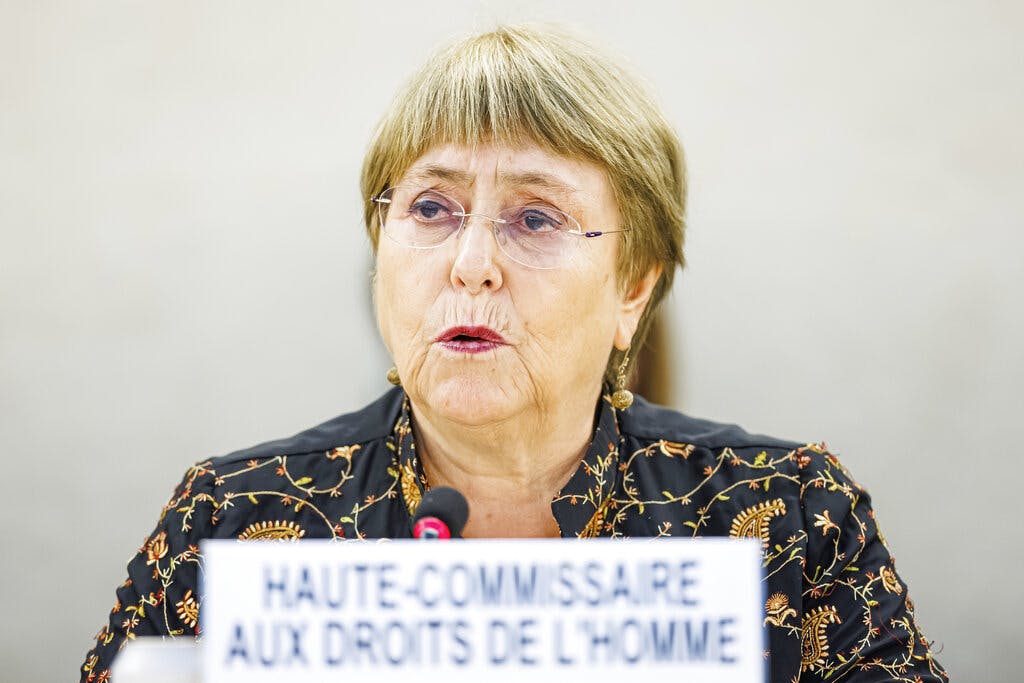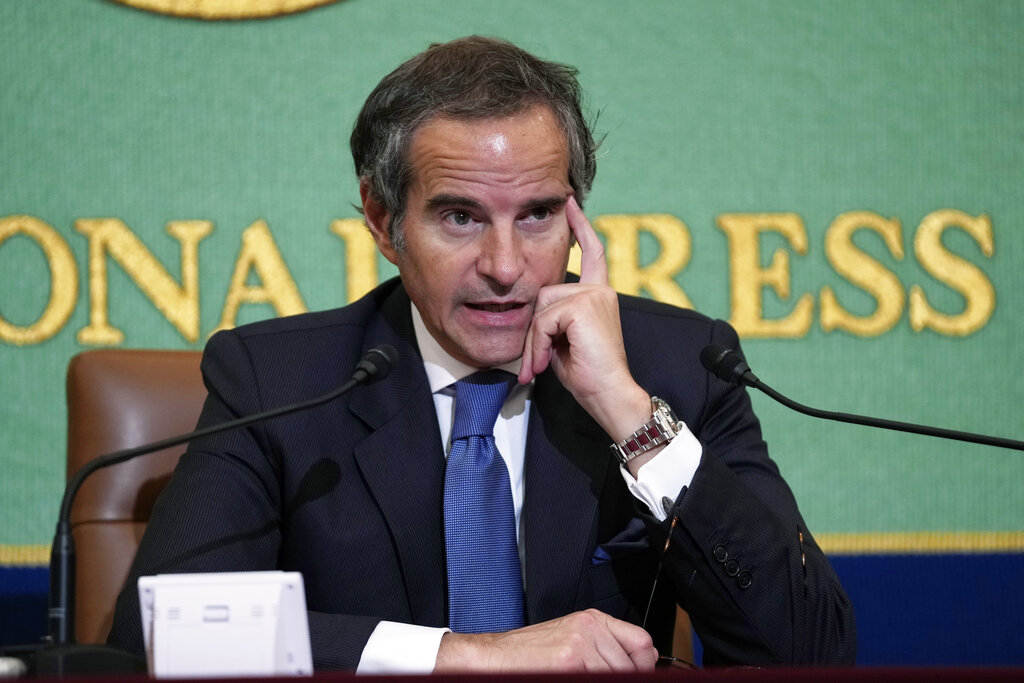Tale of Two Leaders at UN Agencies: A Dark-of-Night Escapee and a Shining Example
Let’s look at some of the lowlights that plagued Michelle Bachelet’s human rights commission tenure at Geneva and highlights of Rafael Grossi’s leadership of the Vienna-based IAEA.

For the United Nations, it has been the best of times and the worst of times — at least when it comes to the top officials at two UN-affiliated bodies: the top inspector at the world’s nuclear watchdog, Rafael Grossi, and the outgoing commissioner of human rights, Michelle Bachelet.
Let’s start with the worst.
A former Chilean president, Ms. Bachelet assumed office in September 2018. Widely seen then as a perfect candidate to reform the ailing Geneva-based rights apparatus, she just left office in the dark of night under a global chorus of boos.
Ms. Bachelet’s long-awaited report on Beijing’s record of horrors targeting a Muslim minority was issued minutes before her term ended at midnight August 31, and hours after she had left Geneva for Santiago.
Then there’s Mr. Grossi. Once an obscure Argentine diplomat, he took the reins at the International Atomic Energy Agency in December 2019, and proceeded to up the game at an organization that for years had been plagued by politicization.

Unlike Ms. Bachelet, who last night dodged reporters to avoid answering questions on her own China report, Mr. Grossi today braved bullets in Ukraine while on his way to seal a deal to secure Europe’s largest civilian nuclear plant. His diplomacy at the Russian-occupied Zaporizhzhya could help avoid a Chernobyl-like catastrophe.
Let’s look at some of the other lowlights that plagued Ms. Bachelet’s tenure at Geneva, followed by highlights of Mr. Grossi’s leadership of the Vienna-based IAEA.
Most recently, Ms. Bachelet expressed full support for a bias-ridden anti-Israel commission of inquiry. One of the commission’s members, Miloon Kothari, said recently that the Jewish state should not be a UN member, and that social media is “being controlled largely by the Jewish lobby.”
Mandated by the Human Rights Council, the commission is part of what is seen as Geneva’s obsession with Israel. Its three members — who by UN rules must be “impartial” — are tasked with an unprecedented open-ended mission of seeking Israeli crimes, regardless of whether they exist. After Ms. Bachelet praised the commission, the Israeli mission at Geneva this week called her a “mouthpiece for the Palestinian Authority.”
While mildly criticizing the Venezuela’s strongman, Nicolas Maduro, Ms. Bachelet reserved her “deep concern” condemnation for what she called the “severe impact on the human rights of the people of Venezuela” that she claimed were caused by none other than a “new set of unilateral sanctions imposed by the U.S.”
No such concern was expressed during a tour of Xinjiang in May when Ms. Bachelet was flanked by Chinese government minders. Following that visit, she praised Communsit China’s human rights record. The global outcry that followed her trip was likely why she decided not to seek a second four-year term. It likely prompted her, too, to sneak out of town last night.
The report released just before she left mostly contained previously known facts about Beijing’s “serious human rights violations.” It concluded that oppression of the Uighurs and other minorities “may amount to crimes against humanity,” but fell short of the state department’s “genocide” characterization.
“Everyone in the world, except apparently people at the United Nations, knows the Chinese Communist Party is committing genocide against Uyghurs and other predominantly Muslim ethnic groups,” Senator Rubio said in a statement today, decrying Beijing’s influence over the UN.
“China is an extremely valuable partner” of the UN “and we very much hope that that cooperation will continue,” the UN secretary-general’s spokesman, Stephane Dujarric, told reporters today, pointing to a long addendum to the report that detailed Beijing’s objections to its conclusions.
Contrast all that with the fiercely independent Mr. Grossi. With Europe spooked by the possible consequences of endless shelling at the Zaporizhzhya plant while Russia and Ukraine accuse each other of endangering the facility, the IAEA director took it upon himself to travel there today, defying security officials who advised him to stay put. After visiting the plant for several hours, he departed while leaving behind five IAEA inspectors.
“We are not going anywhere,” Mr. Grossi said. “We’re going to have a continued presence there at the plant with some of my experts.” While inspectors and non-combatant nuclear technicians cannot guarantee an end to Russian shelling, their presence may help secure the plant.
Another extremely important situation in which Mr. Grossi is a major player is the negotiations over the renewal of the 2015 nuclear deal with Tehran. He is demanding a plausible explanation for traces of enriched uranium that IAEA inspectors collected at an undeclared Iranian nuclear site. That demand is one of the last points of contention in the negotiations.
Several of Mr. Grossi’s predecessors were willing to fudge technical details and declined to report violations in order to accommodate diplomats attempting to reach agreements with rogue regimes. While European and American diplomats are now eager to complete the Iran deal, Mr. Grossi refuses to compromise on thorough inspections.
Islamic Republic officials have accused Mr. Grossi of being a “Zionist agent,” but he insists on doing his job while ignoring the political noise.
It is unlikely that a similar straight shooter will replace Ms. Bachelet. The next human rights commissioner will be handpicked by Secretary-General Guterres — the same person who chose Ms. Bachelet and who praised her performance in office until her final day.

